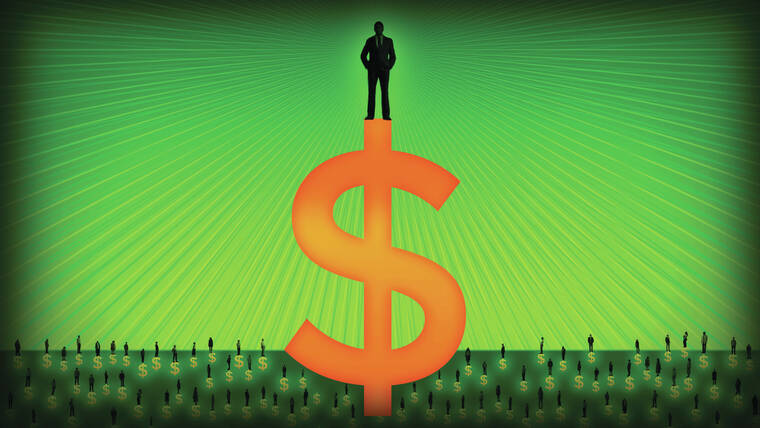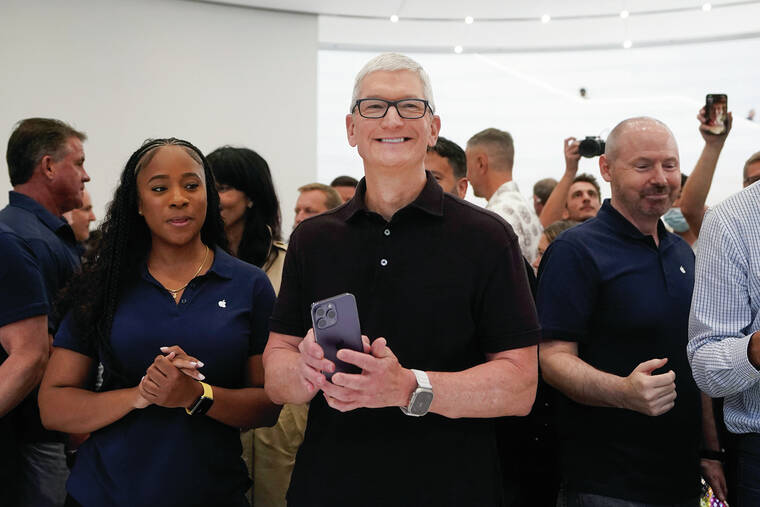After ballooning for years, CEO pay growth is finally slowing.
The typical compensation package for chief executives who run S&P 500 companies rose just 0.9% last year, to a median of $14.8 million, according to data analyzed for The Associated Press by Equilar. That means half the CEOs in the survey made more and half made less. It was the smallest increase since 2015.
Still, that’s unlikely to quell mounting criticism that CEO pay has become excessively high and the imbalance between company bosses and rank-and-file workers too wide. Discontent over that gap has helped fuel labor unrest, and even some institutional investors have pushed back against a few of the most eye-popping packages.
The smaller increase came after CEO pay soared 17% in 2021, when boards rewarded top executives handsomely for steering their companies through the pandemic-induced recession.
Many of the compensation packages were approved early in 2022 but even a small raise might seem lavish in retrospect against the backdrop of a year in which stock markets tanked to their worst performance since 2008, inflation erased wage gains, fears of a recession grew, and tech giants began laying off workers.
“I’m not surprised that after two record years in a row, pay hikes cooled somewhat,” said Sarah Anderson, who directs the Global Economy Project at the progressive Institute for Policy Studies. “What we shouldn’t lose sight of is that CEO pay is still off the charts by historical measures.” She said even a small hike last year was “outrageous.”
In contrast to recent years, CEO pay gains were lower than the 5.1% increase in wages and benefits netted by private-sector workers through 2022.
Still, worker pay failed to keep up with inflation, which was sitting at 6.4% at the end of last year. And the pay disparity between CEOs and rank-and-file workers, which has been widening for years, narrowed only slightly.
The median pay for workers at companies included in the AP survey was $77,178, up 1.3% from $76,160 the previous year.
That means it would take that worker 186 years to make what a CEO making the median pay earned just last year. At the same group of companies in 2021, it would have taken 190 years.
The timing of some of the biggest pay packages struck a discordant note against the backdrop of difficult times for their industries.
Alphabet’s CEO, Sundar Pichai, ranked No. 1 in the AP’s pay survey this year with a package valued at nearly $226 million. The vast majority of his compensation came from a grant of restricted stock, valued at $218 million, and which Google grants its CEO every three years.
The leader of Google won’t reap most of the benefits of the stocks awards right away and how much he realizes ultimately depends on how Alphabet’s stock performs. Alphabet noted in its annual proxy filing that, compared with Pichai’s 2019 stock awards, a greater proportion of the latest batch will only vest if the company reaches goals for shareholder return.
Even so, Pichai received a total compensation package 15 times higher than this year’s median CEO pay just before Google laid off tens of thousands of workers. The company’s total shareholder returns fell 39% last year.
Apple CEO Tim Cook was no. 3 in the AP survey with a compensation package valued at $99.4 million, nearly identical to what Apple gave him in 2021. But Cook has requested a 40% pay cut for 2023, in response to the vote at last year’s annual meeting, where just 64% of shareholders approved of Cook’s pay package, compared to 94% the previous year.
Such shareholder pushback remains rare, however. The vast majority of companies included in AP’s survey received more than 90% support for their executive compensation programs in 2022.
The AP’s and Equilar’s compensation study included pay data for 343 CEOs at S&P 500 companies who have served at least two fiscal years at their companies, which filed proxy statements between Jan. 1 and April 30.


